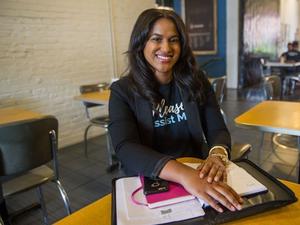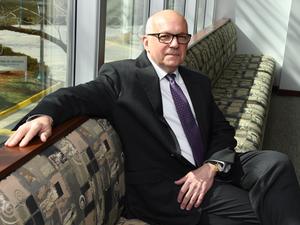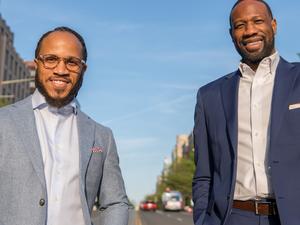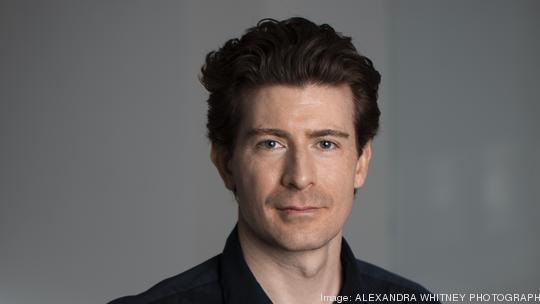
Otolith Labs, a D.C. company developing a medical device for vertigo sufferers, has raised millions in fresh funding from a big-name investor and earned an important regulatory designation to get that product to patients faster.
The startup said late last week it has closed a $3.3 million seed financing round from multiple investors including Mark Cuban via his Radical Investments firm. All other participating investors are local to the Greater Washington and Baltimore region, but Otolith founder and CEO Sam Owen declined to disclose specifics.
Otolith will use the capital for conducting pilot research and finalizing the design of an upcoming clinical trial, Owen said. In an early study, the startup’s device has shown vertigo improvement in 87.5% of 40 participants within five minutes of use. The biotech is now conducting a second part of the study, with results expected in September.
Next up would be that larger clinical trial, which the company must complete successfully to seek approval from the Food and Drug Administration. Otolith would aim to secure that green light by 2023, with a market launch soon to follow, Owen said.
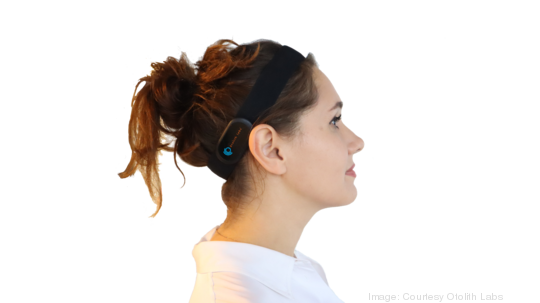
And the company recently got some good news on that regulatory front, the company also announced Thursday. The FDA has designated Otolith’s product a breakthrough device, giving it an expedited review process because it addresses a debilitating and unmet medical need.
The breakthrough status “can really accelerate our end goal, which is to become the standard of care for chronic vertigo,” Owen said in an email. It’ll give the company both greater access to feedback from payors and the FDA’s senior management, and help the company better design the pivotal trial and speed up the reimbursement process, he said.
That news from the agency came less than two weeks after Cuban’s investment was finalized, Owen said. The local founder had connected with the billionaire entrepreneur and Dallas Mavericks owner first through a cold email about four years ago. More recently, Owen shared the data that showed the device’s immediate effect on vertigo symptoms.
“I have experienced first-hand the debilitating nature of vestibular issues and limited treatments,” Cuban said in a statement. “I am therefore extremely pleased that the FDA has recognized the potential for Otolith’s breakthrough technology.”
Otolith joins an elite but growing group of D.C.-area companies with backing from Cuban, including vegan burger maker Everything Legendary, vegan pork rind startup Snacklins, water filter business Hydroviv and others. But unlike those companies, Otolith captured Cuban’s attention outside of the “Shark Tank” arena.
“It doesn’t matter if you’re a billionaire,” Owen said of the condition. “There are simply no good treatment options.”
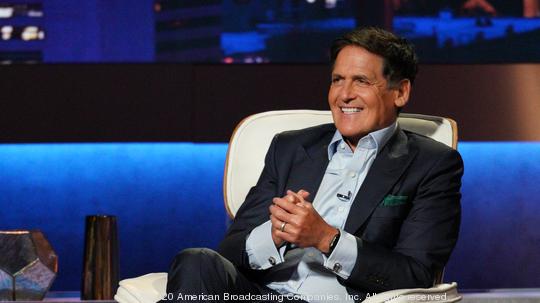
Otolith’s device is a wearable headband that mitigates the vestibular system, a set of senses in the inner ear that control balance. Although it was originally developed to treat motion sickness and has the potential to help alleviate symptoms associated with multiple balance disorders, the company is first advancing it specifically for vertigo, an extreme dizziness associated with multiple causes. Once approved, the headband would require a doctor's prescription.
The pandemic led Otolith to rethink its clinical trials, since the university studies it had been enrolling shut down due to coronavirus. It is now instead planning a take-home study through telemedicine, allowing the company “to collect more meaningful, real-world data, with broad geographic enrollment, and at a fraction of the enrollment cost we’d seen with university-based studies,” Owen said.
Otolith delayed a planned larger round of between $10 million and $15 million in favor of this smaller seed financing because it “realized there were still some unanswered questions” relating to the control treatment in its studies “that needed to be answered,” Owen said. So the business is waiting until it can efficiently put that money to work. “That will be when we’ve worked out the details of our pivotal trial rollout and can scale it effectively by dramatically increasing our spend,” Owen said.
With about $5 million in funding to date, per data firm PitchBook, Owen is now tentatively planning to open that Series A round this fall, according to Owen. “We hope our new study data and breakthrough designation will also boost the valuation we will get in our Series A round," he said.
Though its product is not yet to market, Otolith has generated nearly $2 million in revenue to date, thanks to Small Business Innovation Research grants with the Department of Defense. The military has expressed interest in vestibular treatments for both blast injuries and spatial discordance in pilots, Owen said.
Otolith Labs, named for the small structures in the inner ear that help perceive movement and gravity, launched in 2015 based on research Owen conducted while earning his doctorate in physics at Georgetown University. The founder and CEO invested $65,000 of his own money in the company's first two years, and also went through D.C.’s Halcyon Incubator program.
